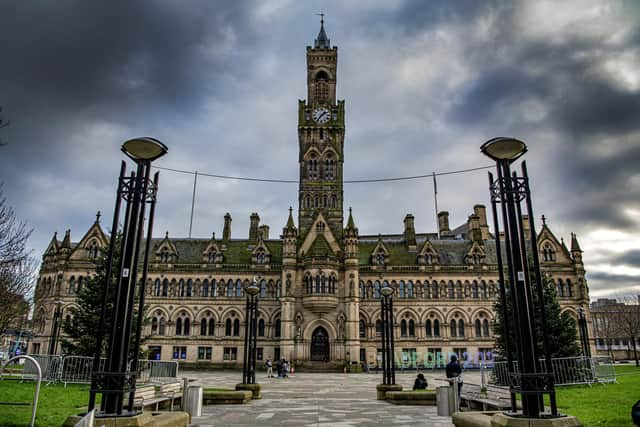The next government will have to sort out the crisis in adult social care and ease the pressure on councils - Bill Carmichael
I always persist because although the details can be as dry as dust, this stuff matters hugely to people’s lives.
Local authorities provide some of the most important services that the public rightly value, for example caring for the elderly and infirm, and child protection, where we have seen some catastrophic failures from Rotherham to Rochdale when things go wrong.
Advertisement
Hide AdAdvertisement
Hide AdEverything from providing social housing, emptying your bins, gritting the roads and repairing potholes, dealing with planning applications, street lighting, public toilets, running the library, and carrying out hygiene inspections on the local kebab shop, are all the responsibility of your local council.


I normally take talk of ‘austerity’ and 'savage cuts’ with a bucket-load of salt, because under so-called ‘small state’ Conservative-led administrations there have been massive increases in central government spending, from around £700bn a year in 2010, to £1,189bn in 2024.
These statistics are frequently greeted with astonishment and disbelief by my students, raised as they have been on lurid tales of the evil Tories laying waste to the public sector. It just isn’t true. Government has got bigger and spends more.
But the one area where cuts have bitten deeply is in the funding to local authorities. Many councils have seen cuts of 40 per cent and more over the last 13 years in the Revenue Support Grant they receive from central government, which is one of the main sources of spending.
Advertisement
Hide AdAdvertisement
Hide AdTo make matters worse, because of the perverse way the system works, it is the councils in the poorest areas, in places like Yorkshire, that are hit the hardest.
Central government limits the increases that councils can impose on Council Tax. Because housing stock has a higher value in richer areas, a percentage increase in Council Tax will raise far more for a local council in Berkshire than in Barnsley.
Similarly, local authorities are now allowed to retain about half of the money collected in Business Rates, but again this raises more cash in wealthy areas compared to poorer ones.
So local councils in disadvantaged areas are far more reliant on central government grants - and this is where the cuts have come.
Advertisement
Hide AdAdvertisement
Hide AdAt the same time the demands placed on local authorities, particularly in areas such as adult social care, have increased massively, thanks to an ageing population.
To try to make up the funding shortfall, many local councils have been tempted to invest in often risky commercial ventures, such as running their own energy companies, with some disastrous results.
For example Robin Hood Energy, owned by Nottingham City Council, was forced to close in 2020 at a cost to the city’s council tax payers of about £38m.
Many councils have run up huge levels of debt. An analysis conducted by the BBC this week found that UK local authorities owed a combined £97.8bn - the equivalent of £1,100 for every person in the country.
Advertisement
Hide AdAdvertisement
Hide AdNumerous councils, including Birmingham and Nottingham, have issued Section 114 notices informing the government they won’t be able to balance their budgets. Essentially it means they have gone bust.
Last month Bradford City Council avoided declaring bankruptcy, but made an urgent appeal for a government bailout after running up a deficit of £73m this year, rising to £103m in the coming financial year.
Fully 87 per cent of the council’s budget is spent on child protection and adult social care.
The result of all this is likely to be unprecedented cuts in the services in the coming months right across the country. Many councils can no longer afford so-called ‘discretionary’ spending, for example nice things such as youth clubs, luncheon clubs for older people, providing free wi-fi, or summer sports camps for children.
Advertisement
Hide AdAdvertisement
Hide AdInstead, all of the money available is needed for ‘statutory’ spending - that is spending required in law, such as child protection and adult social care.
We are heading in the near future to a world of run down parks, dilapidated equipment in the children’s playground, shut leisure centres and the closure of sporting and youth groups.
Whoever wins the next election will have to sort out the crisis in adult social care and ease the intolerable pressure on local councils.
Comment Guidelines
National World encourages reader discussion on our stories. User feedback, insights and back-and-forth exchanges add a rich layer of context to reporting. Please review our Community Guidelines before commenting.